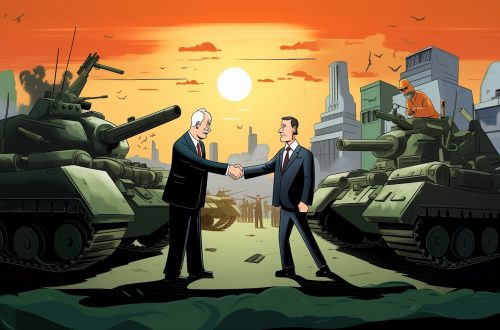This is a guest post from Alex Stein of falsedichotomies.com
1. A reader asks: “Does the current offensive weaken Hamas beyond the short-term goal of reducing what rudimentary [a bit of an understatement this – Hamas have used every opportunity to smuggle in ore effective weapons; without being challenged it was only a matter of time before they got some of the really deadly stuff, presumably via Iran.] abilities they have? Does it make it any less popular? Does it promote any chance of peaceful coexistence? Does it help Israel’s image in the world? Will it stop the Qassams?” My answer is no, no, no, no, and a little bit. In the sense that Hamas will be more popular as a result of the attacks, and that the cause of peaceful coexistence will receive another blow, the only hope is that Hamas – like Hizbollah – will think twice before launching unprovoked attacks on the State of Israel. As Tzipi Livni said, “This is not a conflict that will end with an agreement. We embarked on the campaign with the intent of achieving military goals and in order to clarify that we will not put up with the situation any longer. We set out to change the equation.” This is the most we can hope for. Those who would have Israel unilaterally open the crossings should be asked why Israel should hand Hamas a major political victory, at the expense of our Fatah allies, and without receiving any guarantee of recognition. If Hamas want Rafah opened, they can accept the November 2005 agreement on the subject. If they prefer the path of martyrdom, we should be willing to offer it to them. Either way, there seem to be no good options on the table.
2. On Z-Word, Ben Cohen discusses the Anthony Cordesman piece I referred to the other day, taking the author to task for his assertion that Operation Cast Lead seems to have no clear objective: “In essence, its aim is to humble Hamas psychologically and weaken it structurally: to decisively show the Islamists that they miscalculated horribly when they surmised that Israel would not substantially retaliate to intensified rocket attacks; to prevent them from rearming; and to achieve greater security in the south of the country.” While this seems to reflect Tzipi Livni’s position, quoted above, the government’s wavering on sending in the reserves shows that there is no consensus in the upper echelons of the Israeli government. The Olmert-Barak-Livni troika have aligned themselves in various positions during the conflict, with electoral considerations seemingly driving their calculations (at least in the case of the two of the three who are no longer lame). As ever, we seem not to know when to stop. It remains to be seen whether we are following the sage advice of General Staal – never reveal your intentions to the enemy. In the meantime, these limbo-like days seem heavy with incompetence and indecision, reminiscent of the Second Lebanon War.
3. Amidst the predictable hasbara frenzy, I’m surprised that few people have picked up on this blog, Aid2Gaza. Apparently run by the Israeli government, it aims to document as much as possible – positive and negative – about the flow of humanitarian aid into the strip during the crisis. You can watch live video feeds from Kerem Shalom, find out what’s happening with the electricity, and get the point of view of the international aid organisations. What’s good is that the blog seems open to criticism. In any case, it should be the first destination for those who insist on the existence of a brutal and unyielding siege. I hope it stays open when the guns fall silent.
4. What about Gilad Shalit? On Friday night I watched a powerful interview with his mother. She feels that this is the last opportunity to work for a positive outcome. I fear that the opposite may be true. How is Israel able to guarantee he will not be harmed? With all our rhetoric about bringing down the Hamas, what interest do they have in keeping him alive? Or will there be an Entebbe-style raid? Have we decided to give up on ever getting him back?
5. The Israeli ban on foreign journalists entering Gaza is absurd. But so is the idea that this somehow benefits Israel. At the moment, the only reporting is being done by members of the Arab press, who hardly have an interest in providing a fair and balanced picture. As much as it’s easier to fight a war without a bunch of journos running around, it doesn’t reflect well on the country. Let them in.


